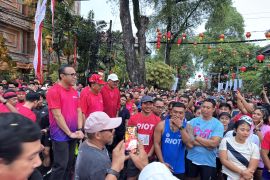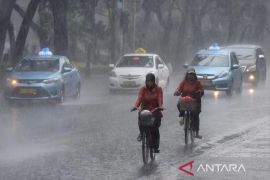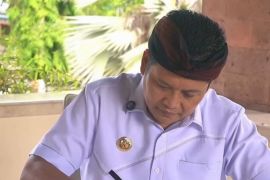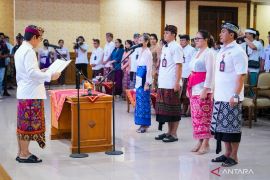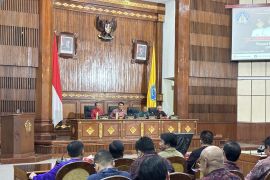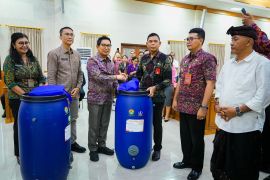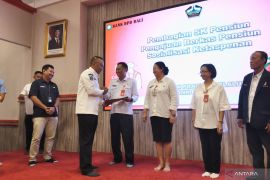Jakarta (Antara Bali) - Two of the three Indonesian migrant workers who were suspected to have links with the ISIS radical group have returned from South Korea to Indonesia, the Indonesian overseas worker recruitment agency said.
"South Korean authorities arrested three Indonesian migrant workers for their alleged links to the ISIS but two of them have been repatriated," Head of the Indonesian Agency for Placement and Protection of Indonesian Workers Overseas (BNP2TKI), Nusron Wahid, said here on Tuesday.
He said one Indonesian migrant worker who was arrested in South Korea was still being held by the South Korean authority.
Nusron said they were suspected to have been involved with the radical ISIS group after establishing communication through the social media network.
"It was indicated that they were involved with the group through Facebook. The contents of their Facebook account were connected to the ISIS teachings, a fact detected by the South Korean early warning system," he said.
Nusron said there was a possibility that more Indonesian migrant workers could be involved in such activities, and the number of such suspects could rise.
Earlier, Nusron mentioned that the alleged involvement of the Indonesian migrant workers in the ISIS network had necessitated the Indonesian government to urgently work out a de-radicalization program for migrant workers.
"They are accused of involvement in the ISIS terrorist group. This group is very aggressive and has effective means of penetrating (potential recruits). We should launch a de-radicalization movement," the BNP2TKI chairman said.
It was reported earlier that the BNP2TKI had claimed that at least three migrant workers were detained in South Korea for having links to the radical network ISIS.
"Three Indonesian migrant workers arrested by the South Korean security officers are accused of having joined the ISIS terrorist network," Head of the Migrant Workers Protection and Placement Agency Nusron Wahid had stated on Jan 15.
Nusron noted that the incident would serve as a warning for the agency to further monitor the activities of migrant workers abroad.
According to Nusron, ideas related to the radical movement are being disseminated in a very aggressive and effective manner.
"Thus, we will undertake de-radicalization efforts," he added.
The efforts will include providing comprehensive training on inclusive religious values and dissemination of moderate Islamic values among the migrant workers, particularly individuals employed in the Middle East and the Asia-Pacific region.
The agency noted that no migrant worker had been sent to Syria since 2012. However, the agency found some Indonesians still working in the country.
"We admit that there are some Indonesians who worked for an employer who had become an ISIS activist. They then joined the radical group," Nusron revealed.
The agency cannot as yet identify the total number of Indonesians who have joined the group in Syria.
According to Nusron, the government will interview the migrant workers who were deported from Syria through Lebanon for further identification.
The next step will be to initiate de-radicalization efforts by offering religious counseling.
Nusron noted that of the total 600 Indonesians who were deported from Syria last year, not more than 10 people were influenced by the radical movement.
"However, we can still change their thought process to re-imbibe moderate religious values after approaching them," Nusron added.(WDY)


